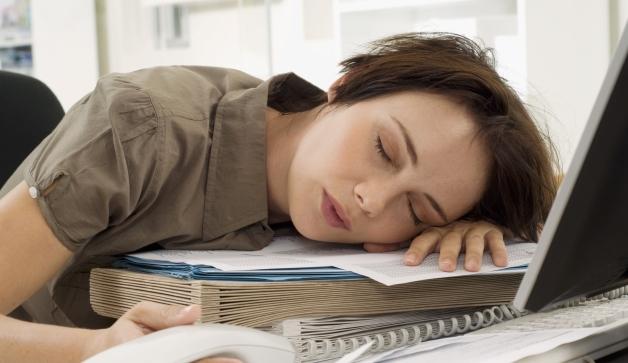When you always feel tired and thirsty you may start to wonder if something might be going on with your body. It can be very normal to feel like you can't get out of bed all day and all you want to do is quench your thirst, if it only happens sporadically. It may be as simple as overdoing things the day before. You most likely did too much and didn't drink enough water. You may have eaten too many salty foods and your body may just be craving some good healthy nutrition.
If fatigue and increased thirst last for more than a few days, it is important to first give yourself a healthy lifestyle check. If this doesn't help in a week or two, it may be time to see your doctor.

Reasons Why You're Always Tired and Thirsty
If you're always exhausted and thirsty, you might have something going on that needs addressed by a doctor. However, there are a few lifestyle factors that can also cause this to happen. First, try to make healthy changes like:
- Cutting back on caffeine
- Increased healthy foods
- Giving yourself stress and rest breaks
- Increased exercise
- Quitting smoking
If these don't help, you may be suffering from something more serious. These are a few of the causes:
1. Sjögren's Syndrome "Dry Body Syndrome"
This is an autoimmune disorder where the body attacks its own ability to producetears, saliva, and other lubricating fluids. It is easily missed and can be passedoff as dehydration, lack of rest, and exposure to heat.
- Other symptoms: Constipation, trouble swallowing, joint and abdominal pain.Females may also have vaginal dryness.
- Treatment: Eye drops to reduce eye dryness. Medications like pilocarpine or Cevimeline to help your body make more saliva. Steroids and NSAID's may also be used to help with systemic symptoms.
2. Anemia
If your blood is low on iron and red blood cells, you may be always tired and thirsty. This means your body can't get enough oxygen and nutrientsto your vital organs and cells. If you have heavy monthly periods or a sourceof bleeding, you can become anemic.
- Other symptoms: Pale skin, feeling cold all the time, appetite loss, shortnessof breath, headaches, dizziness, and sometimes leg cramps.
- Treatment: If anemia is mild, your doctor may advise you to eat foods high iniron. These include dark leafy greens, dried fruits, blackstrap molasses, and iron fortified foods. If you have moderate anemia, you may need to take iron supplements.
3. Diabetes Insipidus
While this disease has no actual relation to actual type 1 or 2 diabetes, it gets its name from the actual symptoms that mimic the symptoms of diabetes. It is caused by a dysfunction in a hormone, “anti-diuretic hormone” or ADH, that prevents the body from losing toomuch fluid. You will notice that you need to drinkcopious amounts of fluids, and feel tired all the time.
- Other symptoms: Increased urination, weak muscles, fast heartbeat, low blood pressure, and even fever.
- Treatment: Your doctor may only feel that you need to increase your fluid intake.You may also be told to monitor your salt intake to reduce the amount of fluids you urinate. If these are not effective, you may need a synthetic hormone calleddesmopressin to help reduce the amount of urine you make.
4. Type 2 Diabetes
The onset of symptoms for type 2 diabetes may make you always tired and thirsty. This is why early type 2 diabetes may be mistaken for something else. Type 2 diabetes is the inability to process sugar and carbohydrates in the foods you eat. This leads to elevated levels of sugar in your blood.
- Other symptoms: Vision issues, increased appetite, sores that do not heal, increased urination, and increased weight around the middlesection of the body.
- Treatment: Early onset type 2 diabetes may be treated with dietary changes, weight loss, exercise and lifestyle changes. Moderate cases may need oral anti-diabetic medication. Later stages of the disease may require insulininjections.
5. Heat Exhaustion
If you are more tired and thirsty than usual, and spend a lot of time outside in the heat, you may be suffering from heat exhaustion. This can be serious if you don't get fluids and cool your body down quickly.
- Other symptoms: Headache, nausea, vomiting, weakness, rapid pulse, and feeling faint. You may also notice muscle cramping with exertion.
- Treatment: Remove any clothing you don't need, sip non-caffeinated and non-alcoholic fluids, take a cool shower or place cool cloths on your skin.
6. High Blood Calcium
Too much calcium in your blood can make you feel tired and thirsty. This condition is caused by a problem in your parathyroid glands. It is treatable, butdoes need medical attention. Calcium levels can easily be checked with a routine blood test ordered by your doctor.
- Other symptoms: Weakness in the muscles, irregular heartbeats, headache,abdominal pain, constipation, and bone pain.
- Treatment: Increased fluids, calcitonin to lower calcium levels, diureticmedications to help your body release calcium in the urine, and in extreme cases kidney dialysis. Some people may need parathyroid surgery to helpcontrol the condition if it continues to be chronic or a tumor is found.
When to See a Doctor
Anyone who is always tired and thirsty should check with their doctor if traditional measures like rest and fluids don't help. This could be a sign of something more serious. It may even be a medical emergency if you have the following symptoms:
- High fever over 102℉
- Altered consciousness
- Sleeping for extended amounts of time
- Unable to keep fluids down (vomiting, diarrhea)
- Trouble breathing
- Irregular heartbeats
- Lack of sweating (In high temperatures)
- Infants or elderly adults with these symptoms
